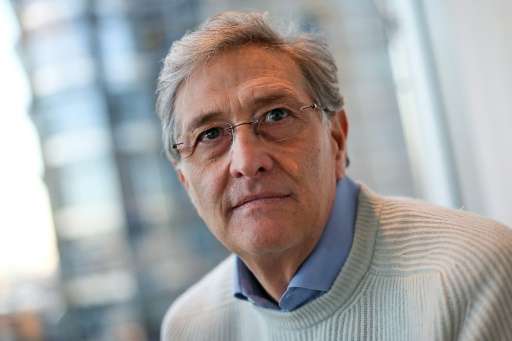Brexit uncertainty hangs over EU medicines agency

Tasked with giving new medicines the go-ahead across the EU, the European Medicines Agency is likely to have to relocate from its London base after Brexit—a prospect that is worrying its chief Guido Rasi.
European Union agencies like the EMA are meant to be located within the bloc, which raises a slew of uncertainties for the staff at its headquarters in London's Canary Wharf business district.
The EMA counts some 900 staff in London who hail from all corners of Europe—pharmacists, biologists, doctors or biochemists tasked with judging whether medicines are ready to be rolled out across the EU—plus 3,000 experts who work alongside the agency.
Rasi, an Italian microbiologist who has led the EMA since 2011, said his staff were overcome by a "very uniform sadness" after Britain's shock referendum vote last June in favour of quitting the EU.
"It was clear to everybody that it was unprecedented but nobody really knows... how to cope, what it could mean," he told AFP in an interview.
Besides moving, there is also a risk that the EMA could lose British expertise in the scientific evaluation and safety monitoring of medicines developed by pharmaceutical companies.
Nationals from every EU country bar Malta and Luxembourg work at the agency. France has the most employees with 112, but there are 59 British staff working for the EMA in their home country.
They are particularly concerned about their future, says Rasi—it remains unclear if Britain will seek to remain a member of the EMA after Brexit, and whether British experts could still be involved in its work.

All this uncertainty is a potential handicap for the complex workings of the agency, which Rasi said operates "as an assembly line" in the 210-day process to get a new medicine certified for use in the EU.
"We are 3,000 experts, delegates, and people are walking exactly in the right time in this assembly line. If they cannot be there, you have to replan everything. The sequence is crucial," said the Italian.
Top staff leaving
The EMA has lost eight members of staff since the Brexit referendum, all "in the most senior range of positions", Rasi said.
Though these departures were not necessarily linked to Brexit and the figure is not yet higher than the agency's normal five percent turnover rate, he worries it is a sign of things to come.
"We are trying to understand what is the maximum number of experts we can tolerate (losing)... We expect that approaching 20 percent would be critical."
Since its creation in 1995, the agency has approved 1,100 medicines, including 82 last year.
Of those which gained approval in 2016, 17 were for treating cancer, 14 for infections, and nine for heart disease.

Search for new home
Rasi said he will not have a say in picking a new home for the agency, with a long list of candidates including Barcelona, Milan and Lyon in France.
It's not clear whether such a move would have to happen within the two-year negotiating period between London and Brussels—due to start by the end of March—or afterwards.
"Our favourite option is to start to know now and to be given a reasonable time to move, not to disrupt the agency," he said.
Nostalgic for his "EMA family", Rasi said one of the best things about the agency was the way it broke down boundaries.
Outside working hours, the agency has seen numerous marriages between staff from different countries.
"We had the feeling for years that the nationalities were mattering less and less," he said, in sharp contrast to a pro-Brexit referendum campaign that focused on the need to put British national interests first.
"That is the major sadness, the loss of this sense of unity."
© 2017 AFP


















